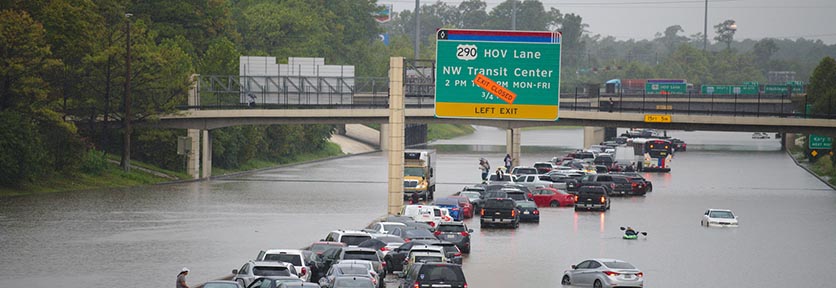Climate and Environment
Overview
Communities worldwide are grappling with challenges like water and air pollution, record heat, and more frequent drought and flooding. How do climate change and other environmental issues intersect with human health and social inequality? And how do political divides shape our responses to these pressing concerns?
Featured Expert(s)
Mary McGrath
IPR political scientist Mary McGrath studies political behavior and examines the partisan divide over beliefs in climate change.
Read bio
Kimberly Marion Suiseeya
IPR associate Kimberly Marion Suiseeya is an environmental social scientist with expertise in environmental justice, global environmental politics, Indigenous politics, and community-driven research.
Read bio
Sera Young
IPR anthropologist Sera Young studies food insecurity, especially during pregnancy and early childhood, and she has developed a tool to measure water insecurity at the household and individual level.
Read bio
Julia Behrman
IPR sociologist Julia Behrman studies fertility and migration, and she investigates how climate change could result in important changes in major life decisions.
Read bio
Research Roundup
Chicago’s West Side Is an Air Pollution Hotspot
Chicago’s West Side, with more Black and Latinx residents, has higher levels of nitrogen dioxide air pollution than the rest of the city, according to
research by IPR associate Daniel Horton.
Communities of Color in the United States Have More Exposure to Air Pollution
A study by IPR associate Daniel Horton
shows that predominantly Black communities in the United States have higher mortality rates from nitrogen dioxide air pollution compared to the average death rate from nitrogen dioxide.
Northwestern Researchers Examine Political Divide Behind Climate Change Beliefs
IPR political scientist Mary McGrath and her colleagues
examine why Democrats and Republicans have different beliefs about climate change and suggest new ways of researching how climate change preferences form.
Disproportionate Impacts of Environmental Challenges
How can marginalized communities adapt to the impact of climate change? IPR associate Kimberly Marion Suiseeya
co-leads the Buffett Global Working Group on the disproportionate impacts of environmental challenges. Her research focuses on using environmental data from smart sensors in key lakes, rivers, and wetlands to support tribal sovereignty.
Roughly 14% of the World’s Population Experiences Water Insecurity
Climate change has exacerbated the global water crisis, and research by IPR anthropologist Sera Young
shows which countries experience the highest rates of water insecurity. She estimates that 436 million adults of the 3 billion represented by the sample, experienced water insecurity in 2021.
For Agrarian Communities, Climate Change’s Effects Are Personal
Climate change has implications for everything from immigration to agricultural policy, but its most immediate impact is on the daily lives of people experiencing its effects. A study by IPR sociologist Julia Behrman
finds that when women in Malawi experience drought, they marry and have children at younger ages.





